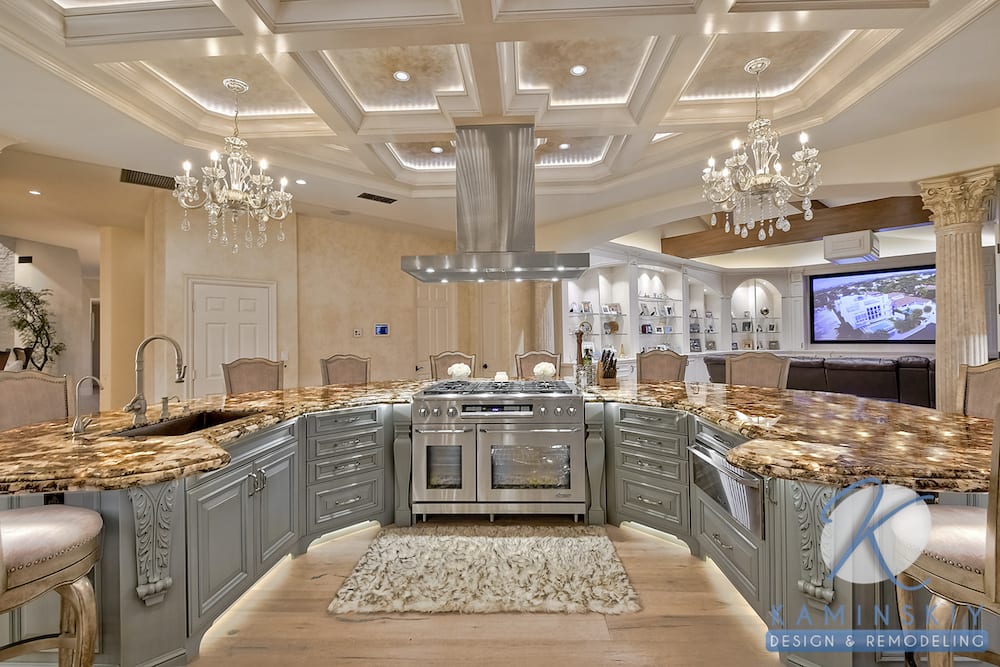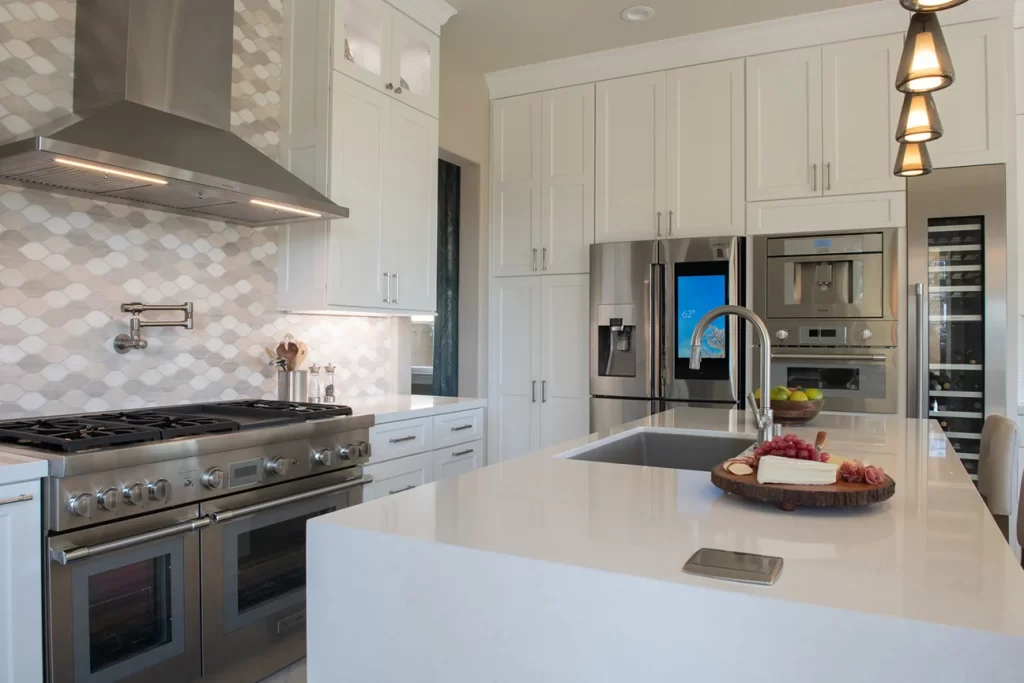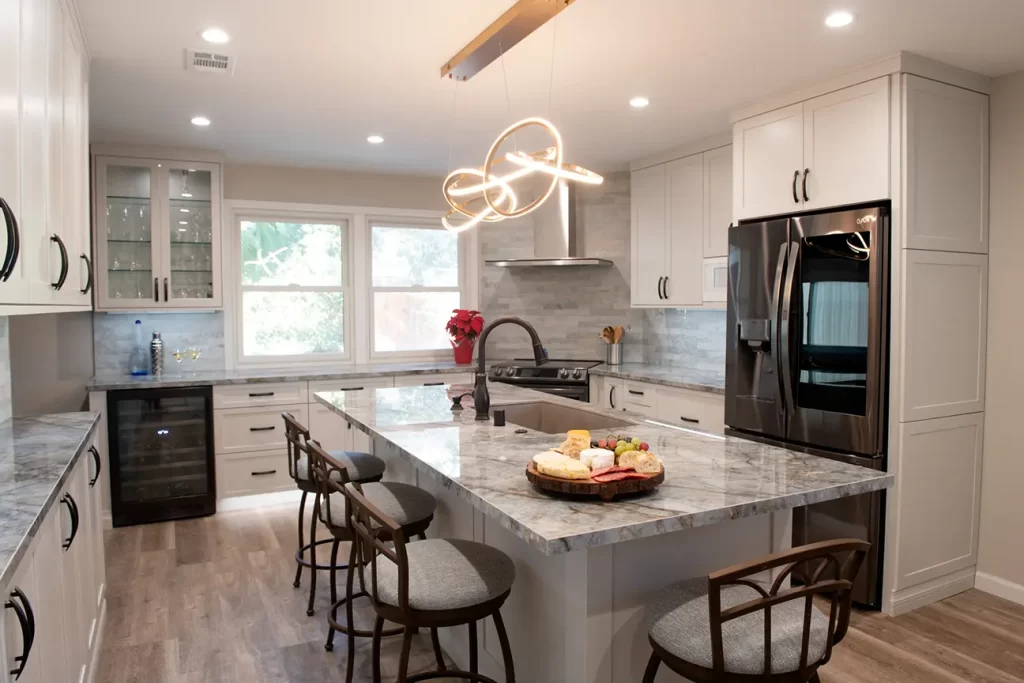
Deciding between remodeling an existing house and building a new one is a common dilemma for many homeowners. Both options have pros and cons, and the best choice may depend on budget, personal preferences, and local real estate market conditions.
In general, remodeling a house is cheaper than building a new one. However, costs can vary, and some projects may require more extensive renovations than initially anticipated, affecting the overall cost equation. Understanding the process and costs associated with home remodeling is crucial for decision-making.
Remodeling a house involves improving and updating the existing structure, layout, and design. Costs can range from minor cosmetic updates to significant structural changes impacting the overall budget.
On the other hand, building a new house provides an opportunity to start from scratch and customize every aspect of the home according to the homeowner’s preferences. While this option offers a chance to create a dream home, it typically comes with higher costs and more complexity than remodeling.
Home remodeling is an option for homeowners who want to update and improve their existing homes while maintaining their character and personal history. Whether it’s a kitchen renovation or a bathroom remodel, these projects can add value to the property and increase living standards for occupants.
One reason to remodel is to enhance the functionality of the space, such as modernizing the kitchen layout or adding more storage in a bathroom. Another factor is aesthetics; homeowners often desire to revamp outdated design elements and personalize their space to reflect their unique tastes.
The cost of home remodeling varies depending on several factors. First, the project scope plays a significant role in determining the renovation costs. A small-scale remodel, such as updating a single room or implementing minor changes, will be less expensive than a whole-house renovation or extensive structural changes. The size of the remodeled space, such as square footage and layout, will also affect the home renovation costs.
Another critical factor is the materials used in the renovation. Choosing high-end finishes, appliances, and fixtures will increase the bathroom remodel cost or kitchen renovation expenditure. Homeowners can manage costs by selecting materials that balance quality, durability, and affordability.

Labor costs are an additional component to consider in remodeling projects. Hiring skilled professionals, such as kitchen remodeling contractors, ensures high-quality work and timely completion. Research local rates and obtain multiple quotes to find a contractor to meet your budget and expectations.
Finally, additional expenses may arise during the renovation process. Unexpected issues, such as plumbing or electrical problems, may require modifications and adjustments to the initial plan. When determining a home improvement budget, factoring in a contingency fund for these unforeseen expenses is essential.
In conclusion, home remodeling can be a cost-effective alternative to building a new house. Considering the factors that influence renovation costs, homeowners can decide to improve their existing home, preserving its character while creating a space tailored to their needs.
Building a new house is a complex process that requires careful planning, design, and construction. That involves selecting the right location, hiring a team of qualified architects, engineers, and builders, obtaining necessary building permits, and ensuring that the construction meets all relevant codes and regulations.
To create a functional and comfortable living space, you must carefully choose the materials and finishes for your new home. This can include everything from flooring and cabinetry to windows and doors. Creating a custom home allows for personalization and flexibility in design but requires careful coordination with various professionals.
The cost is one of the main factors when deciding whether to build a new house. The average cost to build a house can vary greatly depending on location, size, and materials used. Foundation work, framing, and roofing are critical components of new construction, and costs can add up quickly.
In addition to materials and labor costs, you must factor in the price of obtaining building permits and hiring professionals such as architects, engineers, and builders. Utility installations and site work, such as grading and excavation, can also add to the overall cost.
If you’re considering adding extra space to your existing home, building an ADU may be an alternative to building a new house. These units can provide additional living space for family members or generate rental income.
It’s essential to carefully weigh the costs and benefits of building a new house versus remodeling an existing one. With a clear understanding of your budget and goals, you can make the right decision for your unique situation.
When considering a home renovation, analyzing the potential return on investment and the estimated costs is essential. A home renovation cost estimator can be a valuable tool in determining the overall expenses. Factoring in the budget and potential resale value is crucial for informed decision-making.
Remodeling can be cost-effective when updating specific rooms or incorporating high-end features such as quality appliances. While remodeling costs may vary, homeowners may benefit from the increased return on investment, mainly if the house is in a desirable neighborhood.

Conversely, building a new house requires an initial investment in land, permits, and construction costs. On average, the cost to build a house is around $237,760, excluding the expenses related to land, financing charges, and builder’s profit. Considering these factors is essential when comparing the cost of remodeling and building a new property.
One benefit of building a new house is the opportunity to design the layout and style to match your preferences and needs. For example, homeowners may choose between an open or closed kitchen concept. However, constructing a new home can have a higher initial cost and may take longer to complete, impacting the return on investment and resale value.

In conclusion, remodeling and building a new house have financial implications. Each option should be carefully considered based on budget, time, and desired results to determine the best direction for investment.
Beyond the cost of remodeling or building a new house, there are several other factors that you should take into account when making a decision. This section will explore planning and zoning considerations and the balance between predictability and customization.
When deciding whether to remodel or build, it’s essential to consider the goals and preferences you have for your home. Your location and the zoning regulations in your area will impact what changes you can make to your property. For example, if you’re looking to add an accessory dwelling unit (ADU), local zoning laws will determine whether or not it’s allowed.
Working with architects and planning professionals is essential, as they can help you navigate the complex world of residential building codes, zoning regulations, and permits. Remodeling projects that involve plumbing or structural changes may require permits, while building a new home typically requires more detailed planning and zoning approval.
Another aspect to consider when choosing between remodeling and building a new home is the balance between predictability and customization. With a remodel, there may be limitations to what you can change due to the existing structure, especially regarding plumbing and electrical systems.
On the other hand, remodeling your home allows you to maintain your current landscaping, neighborhood, and other factors like schools and amenities. Additionally, a remodeling project may often be less time-consuming than building a new home, which could involve months of construction.
Building a new home offers more flexibility in terms of design and layout, allowing you to create a living space tailored to your preferences and needs. With a new build, you can implement smart kitchen technologies and customize your recessed lighting throughout the house, aligning with your vision for your ideal home.
Ultimately, the decision between remodeling or building a new home comes down to factors beyond cost and will be influenced by your situation, goals, and preferences.
When undertaking a remodeling project, homeowners may encounter various challenges. One common issue is the demolition process, which can involve tearing down walls, gutting rooms, or removing old windows and doors. That can be time-consuming and potentially hazardous, as unexpected structural issues may emerge.
Another factor to consider when remodeling is the difficulty in updating or replacing existing fixtures and installations. For instance, in revamping a galley kitchen, the limited space can make it challenging to incorporate modern design elements while still ensuring functionality.
Also, choosing a bathroom remodeling contractor may necessitate thorough research and careful deliberation to find a trustworthy, experienced professional who can deliver the desired results.
On the other hand, constructing a new house from scratch can pose its own set of challenges. For example, site selection and land acquisition can be complicated, as factors such as location, zoning regulations, and land conditions can impact project feasibility.
Furthermore, the construction process typically requires coordinating with various professionals, such as architects, engineers, and contractors, which can be time-consuming and costly.
In addition, building a new home entails more material choices and customization options that might impact the overall budget. The ongoing inflation and supply chain issues also affect the cost and availability of building materials, potentially increasing construction costs.
In both cases, it’s essential to be mindful of up-and-coming outdoor living trends and incorporate features that add value to the completed project while balancing the budget. By considering the unique challenges associated with remodeling and building, homeowners can make informed decisions to create the desired living space.
Renovating an existing house is often less expensive than building a new one. Renovations can improve the comfort and utility of a home, allowing families to stay in their current location without the need for relocation. Remodeling can also increase a home’s resale value through additional living spaces or improved key areas like kitchens and bathrooms.
However, choosing between renovation and building a new home depends on budget, design preferences, and desired location. While a renovation project may seem more cost-effective, certain circumstances can make building a new house a better option.
When considering the ideal choice for your situation, weighing the pros and cons of both options is essential. The key factors to focus on include:
Ultimately, choosing to remodel or build a new home comes down to personal preference. It’s crucial to thoroughly research and analyze your options to make the best investment for your lifestyle and financial goals.
Yes, remodeling costs can sometimes surpass new construction expenses, especially when extensive repairs and updates are needed. However, renovating an existing house is almost always cheaper than building a new one. Each project is unique, so it’s essential to evaluate your specific situation and weigh the costs and benefits of each option.
Several factors can influence the cost comparison between renovation and new construction, including the extent of the renovations, property condition, regional construction costs, and material prices. In some cases, updating an existing home can provide improved comfort and utility at a lower cost than building a new house.
Rebuilding may make more financial sense when the cost of necessary repairs and renovations exceeds the potential return on investment (ROI) or if the existing property has issues that cannot be resolved through renovation, such as foundational problems or severe structural damage. Additionally, building a new house may be more cost-effective when you have unique design requirements or want to create a highly energy-efficient or custom-built home.
Tax implications can vary depending on your location and circumstances. Renovating an existing home can increase property taxes if the renovation significantly increases the home’s value. Building a new house can also result in higher property taxes. Still, you may be eligible for tax incentives or credits for incorporating energy-efficient features or following green building standards. It’s essential to consult a tax professional to understand the specific financial implications of your decision.
Renovation costs for older homes can significantly vary based on the property’s age, condition, and style. Older homes may require updates to electrical, plumbing, or HVAC systems, and structural repairs might be necessary due to aging materials. As a result, renovation costs for older homes can be higher than those for more modern or well-maintained properties.
The return on investment from a renovation project can differ depending on factors such as the type and quality of renovations, market conditions, and the property’s location. In general, remodeling an existing house can increase resale value and offer a solid ROI. However, it’s essential to consider your specific circumstances and needs carefully when deciding whether to renovate or build new ones.

Jean Becker is an experienced and accomplished Interior Designer at Kaminskiy Design and Remodeling, with expertise in space planning, kitchen and bath design, and custom cabinetry. Her skills extend to remodels, additions, and ADUs, making her a key asset to the team. Beyond her design work, Jean enjoys writing about the latest trends and sharing innovative ideas in the design and remodeling industry.